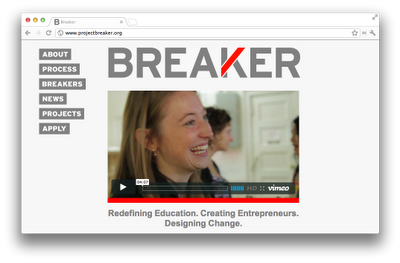Revolution. 3 projects to change the world.
I'm really lucky. I get to work with some of the most brilliant people and ideas.
Sometimes they are just good ideas. Sometimes they are just marketing. And sometimes they are revolutionary. And even if they do not cause revolutions, [and sometimes they do], they make marks, they create footprints - they will carve paths, build models, light the way for the next lot.
Here are three (of many) that I think have that capacity to be world-changing that I've been lucky enough to work with recently:
NewDemocracy.com.au is a Sydney based non-partisan, non-think-tank, doing non-lobbying at a grass-roots level within the very bedrock of democratic life. Their mission is to re-imagine the process through which we as a civic society make decisions about the communities we live in, their future and our values.
They relieve the solitary politician, hard-pressed on all sides by corporate, government and media pressures and spread the decision-making process load across small groups of quietly determined normal people. Who, after researching and enquiring, make the kind of long-term, non-vested, sensible decision that the politician would never be able to get away with.
It makes politics non-politcial, like a neutralising dose of knowledge in the acidic adversarial culture of decision making. Wouldn't it be wonderful if democracy meant the sensible application of governance by the people, rather than fighting elections.
Breaker, brain child of TED Fellow Juliette La Montagne, is a project that is hard to wrap into a line. Because when you do it becomes something like "flip the conventions of internship into a blue-sky entrepreneurship and simultaneously redefine a paradigm of secondary education"; that is polarizing because either it is hard to take seriously, or it makes the hairs stand up on your neck.
I was one of the latter and was fortunate enough to be part of the pilot program 'Future of the Book' which seemingly transformed the apathy and grind of conventional "work experience" into all the energy, adrenaline and excitement of a start-up. The students were asked to consider the role of emerging technologies in addressing the rise of functional illiteracy in the US.
The resulting products, MoBo and Unbound, were designed to get kids reading and keep kids reading during the pivotal middle school years - so along with it's role as an education vehicle, it also produced two highly viable, fundable business solutions. And then it did it again for Urban Agriculture.
Juliette LaMontagne's ideas and vision are revolutionary and inspirational and it is very much to be hoped, both for eduction and the economy, that her work will find a way to scale to every city in the USA, and beyond.
VIDEO

Impossible.com is a venture by Lily Cole. As she says in the video below (with Jimmy Wales), it is a model of a sketch of an idea. But the project is predicated on an understanding of motivation, of how much we do everyday that isn't driven by greed, but rather by altruism, philanthropy, kindness. Impossible has the impossible aim of encouraging and optimising the vast gift economy that already exists in our society.
In other words, seeing as we perform little acts of kindness everyday, seeing as we would all like to help more, not less how do we let the computers we all carry help us to help each other. How can we make the world an easier, warmer, more social place to live - through the power of mobile technology.
Confronted with the daily litany of individualistic alienating technological appery and gadgetry and the dollar signs in the eyes of every west coast entrepreneur it is heart warming to even be associated with.
Contact them if you want to be involved. They need developers.
Watch Lily's video at Zeitgeist:
